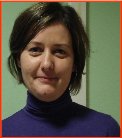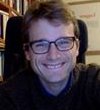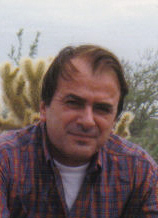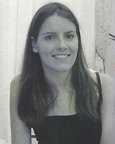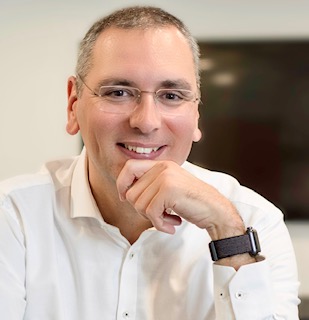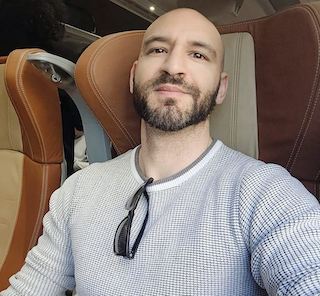Studying at the University of Verona
Here you can find information on the organisational aspects of the Programme, lecture timetables, learning activities and useful contact details for your time at the University, from enrolment to graduation.
Academic calendar
The academic calendar shows the deadlines and scheduled events that are relevant to students, teaching and technical-administrative staff of the University. Public holidays and University closures are also indicated. The academic year normally begins on 1 October each year and ends on 30 September of the following year.
Course calendar
The Academic Calendar sets out the degree programme lecture and exam timetables, as well as the relevant university closure dates..
| Period | From | To |
|---|---|---|
| Sem. 1A | Sep 26, 2022 | Nov 5, 2022 |
| Sem. 1B | Nov 14, 2022 | Dec 23, 2022 |
| Sem. 2A | Feb 13, 2023 | Mar 30, 2023 |
| Sem. 2B | Apr 11, 2023 | May 27, 2023 |
| Session | From | To |
|---|---|---|
| Sessione Invernale | Jan 9, 2023 | Feb 11, 2023 |
| Sessione Estiva | Jun 5, 2023 | Jul 22, 2023 |
| Sessione Autunnale | Aug 28, 2023 | Nov 23, 2023 |
| Sessione straordinaria invernale | Jan 8, 2024 | Feb 17, 2024 |
| Session | From | To |
|---|---|---|
| Sessione Estiva | Jul 10, 2023 | Jul 15, 2023 |
| Sessione Autunnale | Nov 6, 2023 | Nov 11, 2023 |
| Sessione invernale | Apr 2, 2024 | Apr 8, 2024 |
| Period | From | To |
|---|---|---|
| Festa di Ognissanti | Nov 1, 2022 | Nov 1, 2022 |
| Festività Della Immacolata Concezione | Dec 8, 2022 | Dec 8, 2022 |
| Vacanze natalizie | Dec 24, 2022 | Jan 8, 2023 |
| Vacanze di Pasqua | Apr 7, 2023 | Apr 10, 2023 |
| FESTA DELLA LIBERAZIONE | Apr 25, 2023 | Apr 25, 2023 |
| Festa del lavoro | May 1, 2023 | May 1, 2023 |
| Festa del Santo Patrono | May 21, 2023 | May 21, 2023 |
| Festa della Repubblica | Jun 2, 2023 | Jun 2, 2023 |
| Chiusura estiva | Aug 14, 2023 | Aug 19, 2023 |
Exam calendar
Exam dates and rounds are managed by the relevant Humanistic Studies Teaching and Student Services Unit.
To view all the exam sessions available, please use the Exam dashboard on ESSE3.
If you forgot your login details or have problems logging in, please contact the relevant IT HelpDesk, or check the login details recovery web page.
Should you have any doubts or questions, please check the Enrollment FAQs
Academic staff
 roberto.dallachiara@univr.it
roberto.dallachiara@univr.it
 alberto.mattei@univr.it
alberto.mattei@univr.it
 elisabetta.neve@univr.it
elisabetta.neve@univr.it
 mauro.niero@univr.it
mauro.niero@univr.it
 marta.pantalone@univr.it
marta.pantalone@univr.it
 stefania.pontrandolfo@univr.it
stefania.pontrandolfo@univr.it
Study Plan
The Study Plan includes all modules, teaching and learning activities that each student will need to undertake during their time at the University.
Please select your Study Plan based on your enrollment year.
1° Year
| Modules | Credits | TAF | SSD |
|---|
2° Year activated in the A.Y. 2023/2024
| Modules | Credits | TAF | SSD |
|---|
| Modules | Credits | TAF | SSD |
|---|
| Modules | Credits | TAF | SSD |
|---|
| Modules | Credits | TAF | SSD |
|---|
Legend | Type of training activity (TTA)
TAF (Type of Educational Activity) All courses and activities are classified into different types of educational activities, indicated by a letter.
Sociology and Social Work (2022/2023)
The teaching is organized as follows:
PROGETTAZIONE INTERISTITUZIONALE
Credits
3
Period
See the unit page
Academic staff
See the unit page
PROGETTAZIONE E VALUTAZIONE DEI SERVIZI
Credits
3
Period
See the unit page
Academic staff
See the unit page
Learning objectives
KNOWLEDGE AND UNDERSTANDING
- knowledge to plan, organize and evaluate interventions in the field of social policies
- knowledge of co-planning and negotiation with different actors and within the system of accreditations of excellence.
ABILITY TO APPLY KNOWLEDGE AND UNDERSTANDING
- mastery in the use of data collection and information tools;
- socio-economic planning capacity.
SPECIFIC OBJECTIVES The social care reform considers programming as the key tool for the governance of social and health policies. The course, therefore, will have more objectives: to provide knowledge in terms of methodologies for collecting and analyzing complexity problems (use of indicators for programming and evaluation also within the system of accreditations of excellence); methods and techniques of socio-economic planning that can support innovation in social interventions; the ways in which design becomes an advanced central competence of the professional social work (network coordination functions, case management, reporting techniques, fundraising techniques). Through the construction of a project protocol on a case of social intervention, the teaching aims to provide the conceptual basis for the evaluation of intervention projects or complex service organizations. .
Prerequisites and basic notions
Knowledge of social research methodology; organization of social services; knowledge of the code of ethics; knowledge of the work and skills of the social worker.
Bibliography
Criteria for the composition of the final grade
The exam will consist of: a) a written test with open questions for the theoretical part including the three modules; b) a project / protocol built by / by the student for the practical exercise according to the instructions of the teachers. The written test will take place on the same dates and classrooms simultaneously for all three modules, using a single form. The protocols of the practical test, which the student will send by e-mail (TO ALL THREE TEACHERS), will be evaluated by the teachers each for their own part of competence and, subsequently, in a collegial way for the entire work. . The overall teaching grade will consist of the average of the written grade and the grade obtained in the practical test project. Written test of the three modules and evaluation of the project must be passed by the student within the same exam session. If the student does not obtain a sufficient evaluation in one of the three modules, he will have to repeat the written test of all three modules at the next exam of the same session, or in another session. The three protocols of the practical test must be sent to the teachers no later than the end of the session in which the student will take the written test. Students who will take the written test in the first session of June 2023 will be able to deliver and have their protocols assessed also (but not beyond) the autumn session (last day of the autumn session - September) keeping valid the mark obtained in the summer session. If this does not happen, at the first useful session (in this case January / February 2024), the student will have to repeat the written test. INDICATIONS FOR THE PROJECT Before the final and definitive delivery of the project, the group of teachers is available for intermediate checks and / or consultancy for a maximum of 2 times for each project (for a maximum total of 6 overall). The project can be tackled individually or in a group (maximum 3 people, without fail). EVALUATION CRITERIA OF THE WRITTEN EXAMINATION Consistency of the answer with the question. Clarity and correctness of the theoretical and practical issues. Degree of understanding of the teaching topics. Use of appropriate and relevant language. Ability to create, where possible and relevant, links between the topics of the 3 modules. PROJECT EVALUATION CRITERIA Originality of the chosen topic. Relevance of the chosen topic with the issues of the Social Service. Consistency between actions and objectives. Consistency between indicators - concepts - measurement tools / techniques. Presence of relevant and updated bibliographical references and their correct use.
Type D and Type F activities
I 9 crediti liberi a scelta dello studente (ambito “D”) hanno lo scopo di offrire allo studente la possibilità di personalizzare il proprio percorso formativo permettendo di approfondire uno o più argomenti di particolare interesse legati al proprio percorso accademico.
Per garantire questo fine, si invitano gli studenti a rispettare le seguenti indicazioni per il completamento di tale ambito:
- almeno un’attività formativa erogata come esame universitario (con relativo voto in trentesimi); si consigliano Neuropsichiatria infantile - MED39, Tutela dei diritti fondamentali - IUS/08, Sicurezza e previdenza sociale - IUS/07;
- massimo 6 cfu relativi a competenze linguistiche (oltre a quelli previsti dal PdS);
- massimo 6 cfu relativi a competenze informatiche (oltre a quelli previsti dal PdS);
- massimo 4 cfu di tirocinio, (oltre a quelli previsti dal PdS);
- massimo 6 cfu di attività laboratoriale/esercitazioni (compresi quelli previsti nei PdS per l’ambito) di regola viene riconosciuto 1 cfu ogni 25 ore di attività;
- massimo 6 cfu di attività seminariale/convegni/cicli di incontri/formative in genere (sia accreditata dal Dipartimento di Scienze Umane che extrauniversitaria) – di regola viene riconosciuto 1 cfu ogni 8 ore di partecipazione e/o 2 giornate salvo diversamente deliberato;
- non vengono valutate attività svolte in Erasmus non inserite nei Learning Agreement.
Altre informazioni sono reperibili nella Guida per i crediti liberi che è possibile trovare quì.
COMPETENZE TRASVERSALI
Scopri i percorsi formativi promossi dal Teaching and learning centre dell'Ateneo, destinati agli studenti iscritti ai corsi di laurea, volti alla promozione delle competenze trasversali:
https://talc.univr.it/it/competenze-trasversali
| years | Modules | TAF | Teacher |
|---|---|---|---|
| 1° 2° | EXPOSED BODIES - Diotima seminar | D |
Rosanna Cima
(Coordinator)
|
| 1° 2° | Summer school: human sciences and society - (HSAS) – 2022/2023 | D |
Federica De Cordova
(Coordinator)
|
| 1° 2° | X National Conference of the Italian Society of Applied Anthropology (SIAA) “Rethinking Sustainability through Applied Anthropology” | D |
Stefania Pontrandolfo
(Coordinator)
|
| years | Modules | TAF | Teacher |
|---|---|---|---|
| 1° 2° | X National Conference of the Italian Society of Applied Anthropology (SIAA) “Rethinking Sustainability through Applied Anthropology” | D |
Stefania Pontrandolfo
(Coordinator)
|
| years | Modules | TAF | Teacher |
|---|---|---|---|
| 1° 2° | OMeGA - Horizons, Models and Assisted Parenting | D |
Alessandra Cordiano
(Coordinator)
|
| 1° 2° | Making the invisible visible. Study day | D |
Giorgio Gosetti
(Coordinator)
|
| 1° 2° | Legal protection of fundamental rights | D |
Stefano Catalano
(Coordinator)
|
| years | Modules | TAF | Teacher |
|---|---|---|---|
| 1° 2° | Listening in the relationship | D |
Cristina Lonardi
(Coordinator)
|
| 1° 2° | Child Neuropsychiatry | D |
Francesca Darra
(Coordinator)
|
| 1° 2° | OMeGA - Horizons, Models and Assisted Parenting | D |
Alessandra Cordiano
(Coordinator)
|
| 1° 2° | University and DSA: Methods and strategies for studying and studying at university | D |
Ivan Traina
(Coordinator)
|
| years | Modules | TAF | Teacher |
|---|---|---|---|
| 1° 2° | Conflict. Recognize, prevent, manage | D |
Paola Dal Toso
(Coordinator)
|
| 1° 2° | The Talks of EThoS Research Centre | D |
Carlo Chiurco
(Coordinator)
|
Career prospects
Module/Programme news
News for students
There you will find information, resources and services useful during your time at the University (Student’s exam record, your study plan on ESSE3, Distance Learning courses, university email account, office forms, administrative procedures, etc.). You can log into MyUnivr with your GIA login details: only in this way will you be able to receive notification of all the notices from your teachers and your secretariat via email and soon also via the Univr app.
Graduation
Documents
| Title | Info File |
|---|---|
|
|
pdf, it, 99 KB, 13/10/23 |
|
|
pdf, it, 101 KB, 10/04/24 |
List of theses and work experience proposals
| theses proposals | Research area |
|---|---|
| LGBTQ+ Social Psychology | Various topics |
Student mentoring
Gestione carriere
Linguistic training CLA
Practical information for students
Documents
| Title | Info File |
|---|---|
|
|
pdf, it, 325 KB, 02/05/23 |
|
|
pdf, it, 212 KB, 02/05/23 |
|
|
pdf, it, 131 KB, 02/05/23 |
Stage e Tirocini
Il Corso di Studi prevede un tirocinio obbligatorio, secondo le disposizioni e indicazioni che seguono.
1. Le attività di tirocinio degli studenti si svolgono presso strutture esterne, convenzionate con l’Università degli Studi di Verona ai sensi delle vigenti disposizioni in materia.
2. Nelle strutture esterne gli studenti svolgono le attività di tirocinio sotto la responsabilità di un assistente sociale (Tutor-supervisore), appartenente a dette strutture, coordinato a sua volta dal responsabile del tirocinio presso il Corso di Studio. In assenza di un assistente sociale, operante nella struttura esterna, il Collegio didattico, per quanto di competenza, decide, su proposta dei responsabili del tirocinio, in ordine alle condizioni per l’effettuazione o la prosecuzione delle attività di tirocinio degli studenti interessati.
3. Le attività di tirocinio sono obbligatorie per almeno 250 ore. Il Collegio didattico, in deroga alle disposizioni del presente articolo, può consentire a studenti che si trovino in particolari condizioni, in specie se disabili, lavoratori o impegnati in organismi collegiali dell’Università degli Studi di Verona, di non ottemperare in parte all’obbligo di frequenza alle attività di tirocinio, predisponendo forme alternative di tirocinio, anche tramite supporti telematici e multimediali interattivi.
4. I responsabili delle attività di tirocinio presso il Corso di Studio, anche avvalendosi di appositi collaboratori o tutori esterni, accertano la presenza degli studenti presso le rispettive strutture.
5. Al termine dell’attività di tirocinio, lo studente deve presentare una relazione scritta al responsabile di tale attività presso il Corso di Studio. Lo studente elabora la relazione scritta, controfirmata dal Tutor-supervisore. La relazione finale viene valutata dal responsabile del tirocinio presso il Corso di Studio e deve tenere conto degli obiettivi prefissati dal Collegio didattico.
La valutazione viene attribuita al tirocinio nel seguente modo: sufficiente = 0; buono = 1; ottimo = 2; eccellente = 3 e verrà aggiunta alla media dei voti del curriculum al momento della discussione della tesi.
6. Gli Uffici della Direzione Didattica e Servizi agli Studenti predispongono la documentazione necessaria allo svolgimento delle attività di tirocinio, comprese attestazioni e certificazioni.
7. Nel caso in cui lo studente partecipi al programma Erasmus le attività di tirocinio vengono regolamentate come segue:
A – Lo studente svolge il Tirocinio presso la sede Erasmus.
Se lo studente svolge il Tirocinio all’estero si ritiene “assolto” l’obbligo di frequenza al Laboratorio se:
- lo studente aggiorna il proprio docente/tutor con brevi relazioni mensili da inviare mezzo mail, sull’andamento del lavoro svolto presso la sede estera;
- produce una relazione finale completa del tirocinio svolto.
La valutazione finale del laboratorio di guida al tirocinio sarà effettuata da parte del tutor del laboratorio sulla base della relazione dello studente tenendo conto della eventuale valutazione da parte del supervisore estero.
B – Lo studente non svolge il Tirocinio presso la sede Erasmus
Se lo studente non svolge il Tirocinio nella sede Erasmus e lo deve fare al rientro:
- lo studente effettua uno/due incontri individuali iniziali con il docente/tutor in cui predisporre quanto necessita per l’avvio del tirocinio e nei quali verranno forniti materiali, griglie ed eventuali testi di riferimento;
- invia brevi relazioni mensili sull’andamento del tirocinio che sarà svolto in Italia al di fuori del periodo in cui si tiene normalmente il laboratorio di guida al tirocinio;
- produce la relazione finale completa del tirocinio svolto.
Il Corso di Studi prevede un laboratorio interdisciplinare come attività formativa trasversale (3 Cfu di tipo F), presente nell’elenco degli insegnamenti Il laboratorio, per regolamento, prevede la frequenza obbligatoria per almeno i due terzi del totale delle ore.
- Tutte le informazioni in merito agli stage per futuri studenti sono disponibili alla pagina Stage e tirocini.
- Tutte le informazioni in merito agli stage per studenti iscritti sono pubblicate in MyUnivr - come fare per - stage e tirocini.
- Tutte le informazioni in merito agli stage per le aziende sono disponili alla pagina Stage e tirocini per azienze.

 0458425308
0458425308









